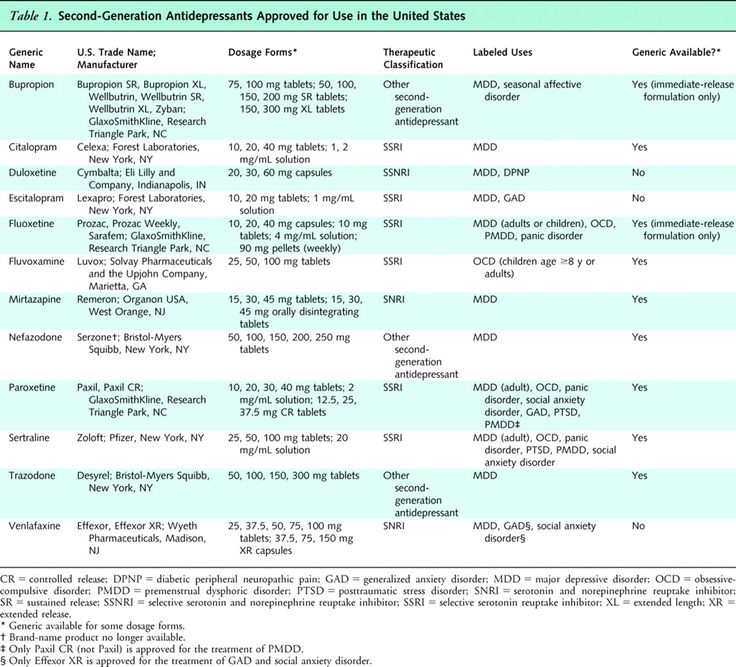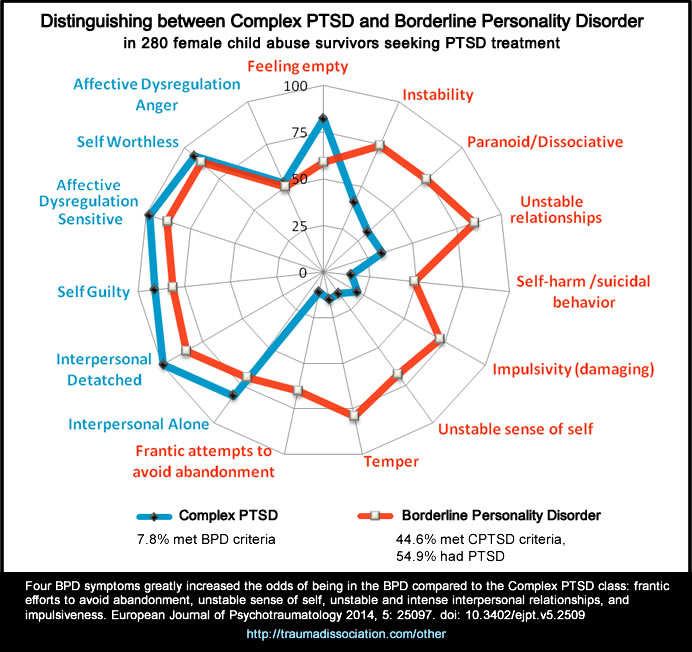Victim of manipulation
Effects Of Psychological And Emotional Manipulation
Effects Of Psychological And Emotional Manipulation
In the case that someone is physically or sexually abused, you will most likely be able to see its effects. When it comes to emotional and mental abuse, this isn’t true. The scars are not bodily, but they can affect the abused person for the rest of their life. This is especially true for those who do not seek help from a professional. Mental manipulation can lead to problems with intimacy, trust, respect, and security, just to name a few.
Check out Episode 26 of our Finding Peaks Show – Helpful Ways To Identify Manipulation and Set Positive Boundaries
Short Term Effects
Surprise and confusion – feeling like whatever is happening can’t possibly be so, wondering why the person who has been a friend or loved one is now acting as a complete stranger.
Questioning self – you may find yourself wondering if you really remember things right or if something is wrong with you. This is a result of everything you do is questioned or being told that you remember things wrong and the manipulative party is right.
Anxiety and vigilance – in order to avoid future manipulation, you may become hypervigilant toward yourself and others. This is a means of avoiding behaviors that might rock the boat or looking for behavior in others that points toward an outburst.
Being passive – as taking action can lead to more pain in an emotionally abusive relationship, being passive can become the default. It is something that can be hard not to do when you are in a situation as stressful as one can be.
Shame and guilt – you may find yourself feeling guilty or blaming yourself for setting off the manipulative presence in your life. As they may blame you, it can become harder not to take that out on yourself, which leads to feeling even worse.
Avoiding eye contact – you may end up avoiding eye contact and becoming smaller inside of yourself in order to take up less space and feel less likely to be picked on by the manipulator.
Walking on eggshells – not knowing what will cause a spike in behavior from the other person can lead to thinking excessively about every little thing you do in order to ensure you don’t upset or anger the manipulator.
Long Term Effects
Isolation and numbness – you become an observer rather than someone who acts. You may feel little to nothing at all, even in situations that should make you joyful. This can make you feel hopeless and damaged, unable to ever feel emotions again.
Requiring approval – this manifests in ways like excessive accomplishing, being nice to everyone, being a people pleaser, and being focused on appearance. After feeling like you were not enough for a long period of time, your instinct is to make yourself seem perfect so others will appreciate you.
Feeling resentful – this can show as frustration, impatience, irritability, and blame. Resentment inevitably requires release, but this can be hard to seek and allow. After someone treats you badly, it can be hard to see anything but that bad behavior.
Excessive judging – you may find yourself watching for what others are doing and holding people, including yourself, to very high standards. This is a means of feeling in control after not being in control. This often requires time and self-compassion to move past.
Depression and anxiety – following manipulation or other emotional abuse, there are so many lies that have been told that you can often believe them yourself. However, the good news is that it can be healed, over time.
In addition to these signs, Stockholm syndrome is also common in these types of situations. The person who is being abused by the abuser will become accustomed to the abuse, and will even defend their painful actions.
Signs Of Manipulation
There are many ways in which an emotional manipulator will seek power by treating another party badly. Some of these are extremely common and may be familiar if you have ever been in a situation such as this. Common tactics include withholding information, gaslighting, blaming the victim, pretending to be confused, shaming, minimizing feelings of others, and lying. More comprehensive explanations of common signs are listed and explained below:
Why People Manipulate
There are many reasons that people choose to manipulate others and these can vary based on the person. Most people engage in manipulation at times, but those who primarily interact with manipulation often share some traits among themselves.
Feelings of helplessness, hopelessness, or worthlessness
Fear of being abandoned
Need for power and control over others
Willingness to put their feelings over the well-being of others.
Need to raise their individual self-esteem.
More On Psychological And Emotional Manipulation
What To Do About A Manipulator
Many people become aware they are being manipulated but are not sure how to handle the situation. The first thing to keep in mind is to always consider your safety above all else. However, there are a few suggested ways to better understand the other person and their motivations that can be tried.
Be direct and honest. Do not participate in situations that escalate the manipulation when you can help it.
Ask questions of the manipulative person and find out if they will directly tell you what it is they want.
Do not share how the manipulative acts make you feel, those feelings will likely be exploited later.
Try to avoid being guilted or shamed into doing something.
If the other person threatens you, ask them about it rather than avoiding the situation.
Common Characteristics Of Victims
While a skilled manipulator can use emotional manipulation on nearly anyone, there are some common themes that manipulators look for.
Those who tie their self-worth to meeting the needs of others are a common victim type. Manipulators are drawn to this type of person as they are easy to manipulate, blame, and victimize. By needing to meet others’ needs to feel love, this type of person may more easily succumb to this kind of abuse.
Individuals who have a hard time saying no to others are also a common type for manipulators to prey on. If you avoid conflict, that allows the manipulator to do what they want without worrying about any repercussions.
People who have trouble expressing negative emotions will typically avoid confrontation and keep things happy no matter what. As such, manipulators sometimes seek these people out as threats may be all that is needed to get whatever it is they want.
Those who have a weak sense of self often have difficulty distinguishing themselves from the abuser. That makes it especially hard to trust your own feelings or make decisions that will make you happy. Manipulators appreciate that as it means they don’t need to try as hard to get what they are after.
Ways To Deal With Manipulation
While we have already mentioned ways to interact with a manipulative person, there are also things you can do yourself to raise your own self-esteem as well. Having a higher self-confidence will help you fight against a manipulator before they are able to damage your overall well-being. If you are currently trying to get out of a manipulative relationship or environment, follow these tips and guidelines below.
Understand and be aware of what is going on around you. Re-read the above material and look for things mentioned so you know how to catch them the next time around. Be aware of how manipulation works and where it leads.
Listen to yourself and your feelings. If you feel self-doubting or confused, be aware of that and consider why you are feeling that way. Pay attention to what the manipulative person is doing or saying and how that affects you.
Pay more attention to actions than words. Don’t assume that when someone says something, it’s the truth or it will be acted on..jpg) Watch for what someone does instead and base your feelings on that.
Watch for what someone does instead and base your feelings on that.
Understand that you are not the problem. If you have realized you are being manipulated, that is not your fault. Be aware that you did nothing wrong to cause it and the other person has their own problems. However, don’t let this lead to sympathy, just awareness.
Be assertive for yourself. Start by choosing to stop responding to techniques the way you did before. Say no if you want, speak up if you want. Understand that their reaction is not your responsibility.
Think about the relationship with the other person. Maybe you want to speak with friends about how you feel or perhaps you want to confront the person. Consider all the options and do what is comfortable for you.
Take your power back by confronting them. Only do this if you do not believe you are in harm’s way. However, explaining how you feel and what is bothering you is not doing something wrong. Request that the other person changes their behaviors. Don’t let them continue with the same behavior. Take your power back and do what you need to do.
Don’t let them continue with the same behavior. Take your power back and do what you need to do.
Let’s Rebuild Together
Peaks Recovery Centers’ can help family members better understand:
Healthy boundaries
Family issues and patterns Codependency
How to develop methods for lasting recovery
Education surrounding the nature of addiction
Schedule A Call
Other Blogs
Admissions
Peaks Recovery Centers exclusive approach to inpatient treatment empowers men and women to leave drugs and alcohol behind them. Whether you are looking for alcohol rehab, drug rehab, our rehab program helps individuals learn and invest in new life practices, therefore they can restore and reclaim their lives.
If you are interested in Peaks Recovery Centers for yourself or a loved one, please don’t hesitate to call or fill out our form today.
Admissions Line
7 Signs to Look For
Written by WebMD Editorial Contributors
Medically Reviewed by Dan Brennan, MD on November 19, 2020
In this Article
- What Is Manipulation?
- Signs of Manipulation
- Treating Manipulation
- Support and Resources
It’s natural for people in relationships to experience problems as the relationship grows. Sometimes these problems stem from emotions or greed. One type of problem that can surface in any type of relationship is manipulation. This is a problem that can lead to others along the way. Learn the signs of manipulation and what to do about it if it surfaces in your relationships with others.
Sometimes these problems stem from emotions or greed. One type of problem that can surface in any type of relationship is manipulation. This is a problem that can lead to others along the way. Learn the signs of manipulation and what to do about it if it surfaces in your relationships with others.
What Is Manipulation?
Manipulation is the exercise of harmful influence over others. People who manipulate others attack their mental and emotional sides to get what they want. The person manipulating — called the manipulator — seeks to create an imbalance of power, and take advantage of a victim to get power, control, benefits, and/or privileges at the expense of the victim.
Manipulation can happen in close or casual relationships, but they are more common in closely formed relationships. In a way, everyone can manipulate others to get what they want. But manipulation is defined as any attempt to sway someone’s emotions to get them to act or feel a certain way.
Manipulators have common tricks they’ll use to make you feel irrational and more likely to give in to their requests. A few common examples include:
A few common examples include:
● Guilt
● Complaining
● Comparing
● Lying
● Denying
● Feigning ignorance or innocence
● Blame
● Mind games
Signs of Manipulation
Manipulation can happen in many forms. In fact, sometimes kindness can be a form of manipulation depending on the intent. Then the question is raised, is any form of influence considered manipulation?
Whether manipulation has good or bad intentions, it is still an attempt to undermine your rational thinking.
People who manipulate others have common traits that you can look for. They include:
- They know your weaknesses and how to exploit them
- They use your insecurities against you
- They convince you to give up something important to you, to make you more dependent on them
- If they are successful in their manipulation, they will continue to do so until you are able to get out of the situation
Other signs of manipulation include:
Location Advantage
A manipulator will try to bring you out of your comfort zone and places that you are familiar with to have an advantage over you. This can be in any place that the manipulator feels ownership of or in control.
This can be in any place that the manipulator feels ownership of or in control.
Manipulation of Facts
A manipulator will actively lie to you, make excuses, blame you, or strategically share facts about them and withhold other truths. In doing this, they feel they are gaining power over you and gaining intellectual superiority.
Exaggeration and Generalization
Manipulators are experts in exaggeration and generalization. They may say things like, “No one has ever loved me.” They use vague accusations to make it harder to see the holes in their arguments.
Cruel Humor
This tactic used by manipulators is meant to poke at your weaknesses and make you feel insecure. By making you look bad, they have a sense of psychological superiority.
Gaslighting
This tactic is used by the manipulator to confuse you and make you question your own reality. The manipulation happens when you confront the abuse or lies and the manipulator tells you that it never happened.
Passive- A ggression
People can be passive-aggressive for many reasons that aren’t always intended to manipulate. But chronic (long-term) manipulators will use this tactic to make you feel guilty, and give backhanded compliments. They are doing this to show anger without directly being angry, making you feel confused.
Constant Judging
The manipulator does not hide their manipulation behind humor or “good fun.” In this case, they are openly judging, ridiculing, and dismissing you. They want to make you feel like you’re doing something wrong, and that no matter what you do you will be inadequate to them. They only focus on negative aspects and do not offer constructive solutions.
Treating Manipulation
Manipulation can be hard to identify or admit to when it’s happening to you. You are not at fault for having manipulation happen to you. There is no way to prevent manipulation, because it’s an issue of the manipulator. It’s up to the manipulator to find help.
It’s up to the manipulator to find help.
However, there are ways to reduce the emotional impact of manipulation. Here are ways to set strong boundaries in a relationship:
- Communicate in clear, direct, and specific ways.
- Understand when manipulation is not normal and needs to be addressed.
- Set boundaries around manipulation and find a way to let the person know that you understand they are manipulating you, and that you don’t want to be a part of that conversation.
- Seek out a trusted individual, who is not under the influence of the manipulator, and ask their advice about your situation.
Being able to identify manipulation is a large part of putting an end to it. If manipulation is coming from a loved one, it can be very difficult to seek help. However, manipulation can take a toll on your own emotional well-being. Therefore, it’s important that you are able to find a safe way out of the situation.
Support and Resources
If you feel like you may be getting manipulated by a loved one, friend, or coworker it is important to reach out to a trusted resource to find help. Resources to consider include:
Resources to consider include:
- Relationship counselor
- Therapist
- Friends
- Trusted family members
- National abuse hotlines
How to understand that you are a victim of manipulation?
Published on by Natalia Venerova
we don’t know why we went on about a person – this is manipulation.
We experience manipulation more often than we realize. They can be different: sweet and innocent, for children who convince parents that “all good dads buy dolls for their daughters”, habitually role-playing for spouses discussing joint plans and “whoever wants to go to football on Sunday will go to visit to mom”, threateningly demonstrative in family clans “you will have to choose who is more important and dear, she or we”, despotic-cruel in personal relationships “if you love me, then forgive me”, corporate-administrative in the service “weekend training is organized for those who care about the company and strive to make a career.
Three simple steps are enough to free yourself from the suffocating influence of manipulation.
1. Learn to be aware of the manipulation process. As soon as you notice that someone's iron will affects the arrows of your life compass, distorts the direction of your life, forces you to make unwanted decisions and take the wrong steps, immediately press the "red button" and turn on the internal psychological alarm.
2. Look for your "pain point" on which the manipulator presses to subdue your will. It can be a feeling of guilt, a desire to meet the standard, to be "no worse than others", fear of condemnation or rejection, fear of appearing poor, weak, a loser, a desire to be good and receive praise, the need to belong to a certain social group. Everyone has their own weaknesses, and this is not unusual.
3. Unmask the manipulator. Say directly that you see his intrigues and machinations, all manipulators are afraid of this. Becoming explicit and public, manipulation loses its meaning, it is afraid of exposure, like a shadow is afraid of light. At the same time, it is not necessary to conflict, you can act calmly and confidently: “Do not rush me, I will think it over and report the decision” or with humor: “And you are delicately manipulating, I almost succumbed.”
At the same time, it is not necessary to conflict, you can act calmly and confidently: “Do not rush me, I will think it over and report the decision” or with humor: “And you are delicately manipulating, I almost succumbed.”
If you understand that a close person is constantly trying to manipulate you: friend, lover, spouse, child, family member, then the most important thing is to understand the reason. What makes a person resort to manipulation: fear of losing relationships, self-doubt, increased anxiety, desire for material gain?
Another important question for analysis is what a person is trying to get as a result of his manipulations: your attention, encouragement, an additional portion of care? In this case, the manipulator can be “cured” with approval, support and warmth, and you can laugh at cute tricks together over evening tea. But if a loved one forces you to constantly sacrifice your interests, give up intentions, plans and desires for the sake of satisfying your own, then you should seriously consider whether this person is really close to you and on what basis your relationship is built.
Heading:
- Psychology: personality and business
Keywords:
- manipulation in communication
Rate publication
Popular
15 memes about recruiting, interviews, resumes and careers [10/21/2022]
YOLO: a trend that has not gone away after the pandemic, or how to retain employees
And the spirit of competition is sweet and pleasant for us: why unhealthy competition in a team leads to a decrease in efficiency and financial losses
How to understand that you are being manipulated
Publishing house "Alpina Publisher" 123007, Moscow, st. 4th Magistralnaya, 5, building 1 +74951200704
next article
January 22, 2020
6 minutes 30 seconds to read
"Manipulation is a kind of hidden, against the will of a person, psychological influence that has a myth, purpose and scenario line of behavior of the victim. "
"
Nikita Nepryakhin "I'm manipulating you"
Manipulation is always a destructive play on feelings and emotions, contrary to the wishes of the victim. Any cry cannot be called manipulation, it has clear signs: it affects feelings and emotions, it is hidden and violent. Manipulative relationships are not healthy. We tell you how to recognize manipulation and prevent it in time.
Signs of manipulation
Manipulation causes only harm to the victim, it consists of three essential elements:
- Psychological impact. Manipulators deftly determine the weak points of the victim, they skillfully play on feelings and emotions. Next to them, the victim feels anxious, insecure, depressed and oppressed. Due to the impact on emotions, the victim loses the ability to calmly analyze the situation.
- Violent character. The manipulator, like a puppeteer, controls his victim, always against his will. It is important for him that she herself takes the necessary action, or makes a decision in his favor.
 For example, the victim does not want to sign documents. The manipulator will put pressure on her "pain points" (suspiciousness, timidity, cowardice) and as a result, she herself will decide to sign the papers he needs.
For example, the victim does not want to sign documents. The manipulator will put pressure on her "pain points" (suspiciousness, timidity, cowardice) and as a result, she herself will decide to sign the papers he needs. - Hidden character. This is a key property of the manipulation. The manipulator secretly influences the victim, works with his weak points, and does not share his motives, needs and feelings. Therefore, open insults cannot be called manipulation: name-calling is hard not to notice. The manipulator can torture his victim in many ways, such as not talking to him for a long time. When she clarifies the reason for the silence, the offender claims that everything is in order and does not give any explanation.
External signs of a manipulator
The manipulator operates in secret, so it is important for him not to arouse suspicion. As a rule, experienced manipulators are smiling and sociable. They know how to attract attention and win over a person. They have no difficulties in communication, so they can easily find out from the environment of the victim, or from herself about her weak points.
They have no difficulties in communication, so they can easily find out from the environment of the victim, or from herself about her weak points.
“He knows how to surprise and take advantage of any weakness of a counterpart. He always hides under a sheep's skin. He hides behind a mask. He is cunning and two-faced."
Nikita Nepryakhin gives four common types of manipulators:
- Despot . Works with a sense of fear of the victim, it is important for him to demonstrate control and strength, shows aggression. He does his best to make those around him feel like victims.
- "Victim of circumstances". Plays on pity, deliberately shows that he is a victim in this situation. He loves when they do the work for him, so he focuses on his weakness, infantilism and incompetence.
- "Prosecutor" . Tries to make the victim feel guilty. Criticizes and shames others, positions himself as an expert in all areas.
 Collects grievances and claims in order to present them in time.
Collects grievances and claims in order to present them in time. - "Your boyfriend" . Communicates with the victim as if they had known each other for many years. He wants the victim to not be able to refuse him, for this, for each of his small deeds, he demands much more from the victim.
Illustration from the book "I manipulate you"
Target of manipulation
The manipulator plays on desires and needs, feelings of guilt, fear and envy, beliefs and stereotypes. The area of its influence is called the target of manipulation.
One of the most popular methods of manipulation: an appeal to feelings of guilt. It is based on fear of punishment and is often manipulated by people who are prone to blaming themselves. The scenario line of the manipulator is based on the victim's fear of offending him, so the victim needs to turn off this fear. To begin with, it is worth thinking about the origins of the feeling of guilt: did it appear by itself or was it imposed?
Such manipulation is dangerous for the health of the victim: constant self-flagellation often causes apathy. Sometimes the best way to counter is to move away from the manipulator.
Sometimes the best way to counter is to move away from the manipulator.
Structure of motivation
If the victim suspects his opponent of manipulation, she needs to determine his goals and restore the structure of influence:
This is how the structure of the manipulation “A bad person is a bad argument” from Nikita Nepryakhin’s book looks like:
Myth : “And this is what a person with a criminal record tells us” or “First you arrive on time for meetings, and then try to take the floor.














